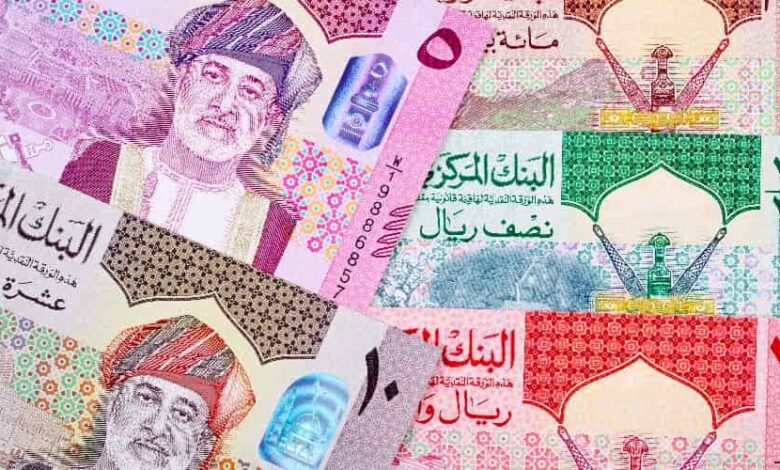Omr Exchange Rate

Currency exchange rates play a crucial role in global trade, travel, and finance. If you’ve ever wondered about the exchange rate between the Omani Rial (OMR) and the Bangladeshi Taka (BDT), this article is for you. Let’s dive into the details, starting with a brief overview of these currencies.
Omani Rial (OMR) to Bangladeshi Taka (BDT)
| Omani Rial (OMR) | Bangladeshi Taka (BDT) |
|---|---|
| 25 OMR | 7,635.1 BDT |
| 50 OMR | 15,270.2 BDT |
| 100 OMR | 30,540.4 BDT |
What is the Omani Rial (OMR)?
Historical Background
The Omani Rial is the official currency of Oman, introduced in 1970 to replace the Indian Rupee and Maria Theresa Thaler. The currency has a rich history that reflects the economic evolution of Oman.
Current Value and Strength
Today, the OMR is one of the strongest currencies globally, thanks to Oman’s robust economy and significant oil exports. It is pegged to the US dollar, which helps maintain its stability.
Economic Factors Influencing OMR
Several factors influence the value of the OMR, including oil prices, government policies, and the overall economic health of Oman. The country’s reliance on oil exports makes its currency sensitive to fluctuations in global oil prices.
What is the Bangladeshi Taka (BDT)?
Historical Background
The Bangladeshi Taka, abbreviated as BDT, is the official currency of Bangladesh. It was introduced in 1972, replacing the Pakistani Rupee after the country gained independence.
Current Value and Strength
The BDT has undergone various changes over the years, reflecting Bangladesh’s economic growth and challenges. While not as strong as the OMR, the BDT is crucial for the local economy.
Economic Factors Influencing BDT
The BDT’s value is influenced by several factors, including inflation rates, foreign investment, and economic policies. Bangladesh’s economic growth and stability also play a significant role.
Exchange Rate Basics
Definition of Exchange Rate
An exchange rate is the value of one currency for the purpose of conversion to another. It determines how much of one currency you get when exchanging it for another.
Factors Influencing Exchange Rates
Inflation Rates
Countries with lower inflation rates tend to have stronger currencies because their purchasing power increases relative to other currencies.
Interest Rates
Higher interest rates offer lenders a better return relative to other countries. Therefore, higher interest rates attract foreign capital and cause an appreciation of the currency.
Economic Stability
Countries with less risk for political and economic turmoil are more attractive to foreign investors, leading to a stronger currency.
Market Speculation
If investors believe a currency will strengthen in the future, they will buy more of that currency now, driving up its value.
Omani Rial to Bangladeshi Taka Exchange Rate
Current Exchange Rate
As of the latest data, 1 OMR equals approximately 306.165 BDT. This rate can fluctuate based on economic conditions and market demand.
Historical Exchange Rate Trends
Historically, the OMR has maintained a strong position against the BDT, reflecting Oman’s economic stability compared to Bangladesh.
Factors Affecting OMR to BDT Exchange Rate
Trade Relations
The trade relationship between Oman and Bangladesh can impact the exchange rate. A positive trade balance can strengthen the OMR against the BDT.
Economic Policies
Government policies in both countries, such as changes in interest rates or trade tariffs, can also influence the exchange rate.
Practical Implications of the Exchange Rate
For Travelers
Travelers from Oman to Bangladesh or vice versa need to be aware of the exchange rate to budget their expenses accurately.
For Businesses and Trade
Businesses engaged in import and export between the two countries must consider the exchange rate to price their goods and services competitively.
For Remittances
Many Bangladeshis work in Oman and send money back home. Understanding the exchange rate helps them get the best value for their remittances.
How to Convert Omani Rial to Bangladeshi Taka
Online Currency Converters
Several online platforms provide up-to-date exchange rates and conversion tools, making it easy to convert OMR to BDT.
Banks and Financial Institutions
Banks offer currency exchange services, often with competitive rates. It’s essential to compare rates from different banks to get the best deal.
Exchange Counters
Currency exchange counters at airports and in cities also provide conversion services, though their rates might be less favorable than banks.
Understanding Exchange Rate Quotes
1 OMR to BDT
As mentioned earlier, 1 OMR equals approximately 306.165 BDT. This is the base unit for understanding other conversions.
5 OMR to BDT
5 OMR would be equivalent to approximately 1,530.83 BDT.
10 OMR to BDT
10 OMR translates to around 3,061.65 BDT.
25 OMR to BDT
25 OMR would convert to approximately 7,654.13 BDT.
Tips for Getting the Best Exchange Rate
Monitoring Exchange Rates
Keep an eye on daily exchange rate fluctuations to convert your money when the rates are favorable.
Timing Your Transactions
Exchange rates can be volatile. Timing your conversion when the rate is at its peak can save you money.
Using Reliable Services
Ensure you use reputable banks or exchange services to avoid hidden fees and unfavorable rates.
Conclusion
Understanding the exchange rate between the Omani Rial and Bangladeshi Taka is crucial for anyone dealing with these currencies. Whether you’re traveling, doing business, or sending remittances, being informed helps you make better financial decisions.
FAQs
What is the current exchange rate of OMR to BDT? The current exchange rate is approximately 1 OMR to 306.165 BDT.
Why do exchange rates fluctuate? Exchange rates fluctuate due to changes in economic conditions, interest rates, inflation, and market speculation.
How can I get the best exchange rate when converting currencies? Monitor the exchange rates regularly, time your transactions wisely, and use reputable exchange services.
What factors should I consider when sending remittances? Consider the exchange rate, fees charged by the service provider, and the speed of the transfer.
Where can I find reliable exchange rate information? You can find reliable information from banks, financial institutions, and reputable online currency converter websites.



